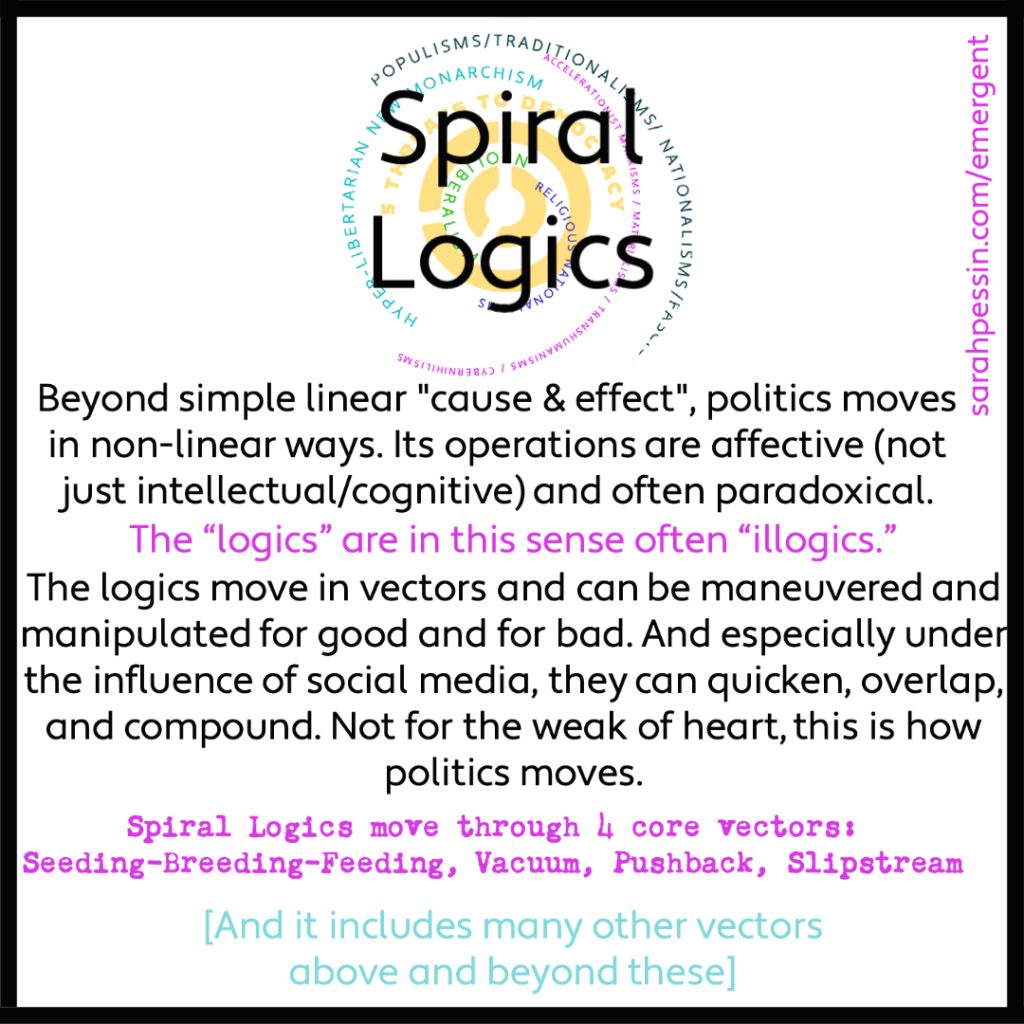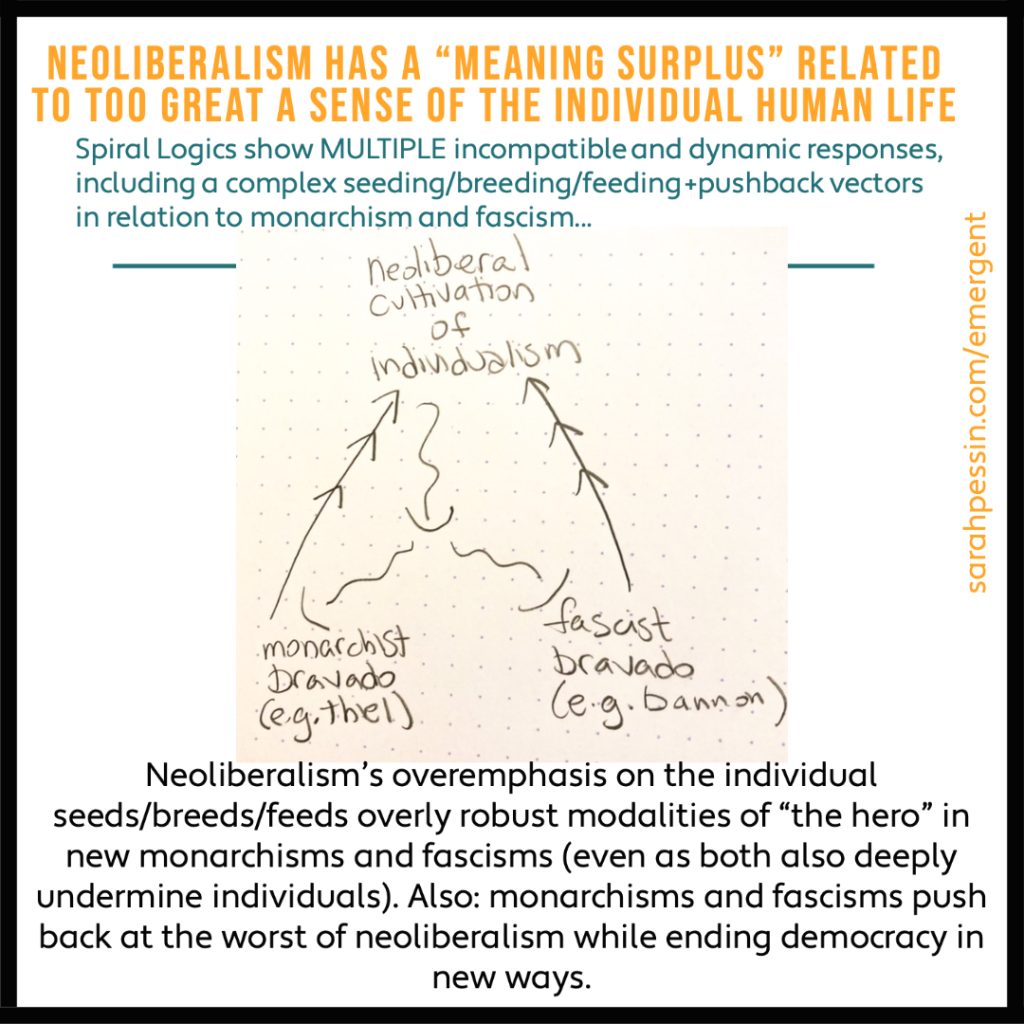Politics moves in embodied non-linear ways. “Spiral Logics” is a diagnostic tool for better assessing and addressing the ins and outs–the vectors– of political motions. It helps you track the complexity of the problem so that you know what you’re actually trying to solve before you start solving for the wrong thing. It also helps you inflect your solution set to try to avoid foreseeable bad consequences. (Of course, every solution will also lead to unforeseeable bad consequences–which is why taking a “pivot-prone,” “iterative,” “2.0” approach is always key).
[Where are these ideas coming from? The tool is my own but it is based on my years of research into logics of embodiment and paradox, including paradoxical logics of embodiment in the works of Merleau-Ponty and Levinas, paradoxical logics of emanation in late ancient and medieval Greek, Jewish, Islamic, and Christian Pythagoreanisms and Neoplatonisms, the affective politics of William Connolly, and Anzaldua’s work on hybridities and borderlands. I am also thankful to the many colleagues and students who have helped refine and who continue to help refine this tool].
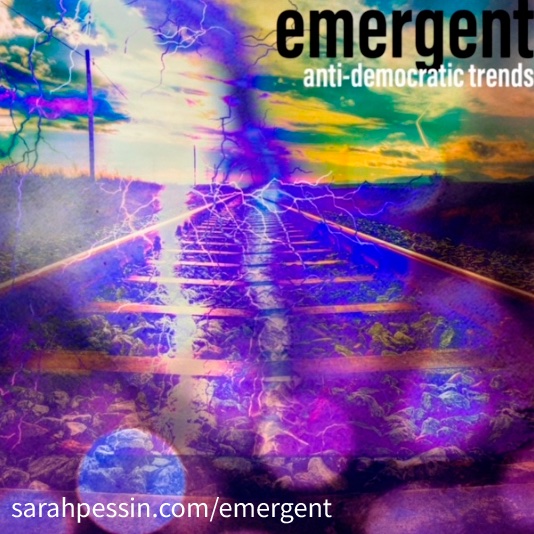
Note: “Logics” is meant to capture the internal and external ordering of a motion system, and has nothing to do with “Formal Logic”. In fact, because it is an embodied/affective set of motions, it often defies ordinary expectations. Spiral Logics in this sense are often “illogics.”
As for “spiral,” separate from the shape it’s a concept used in a range of ancient thought traditions to signal deep paradoxical logics pulsing at the core of the everyday. I use the term in that sense.
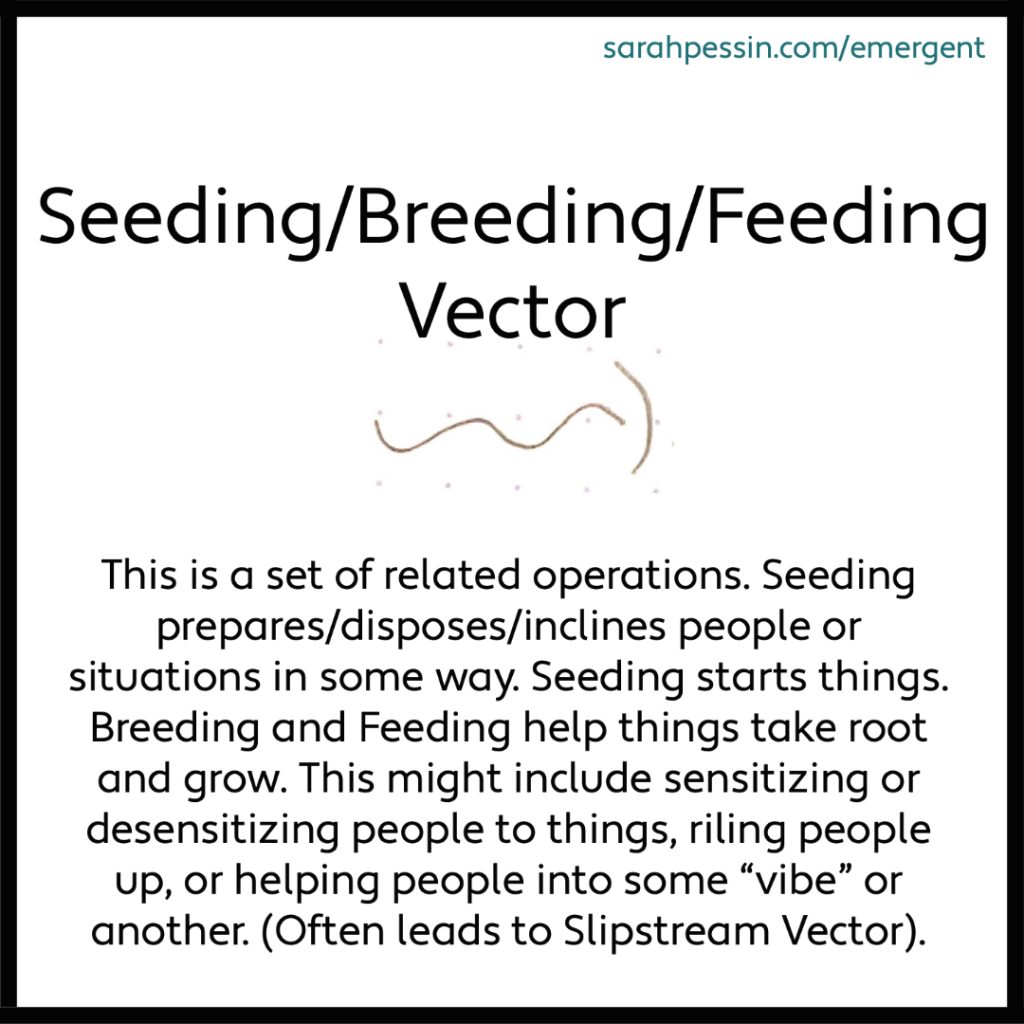
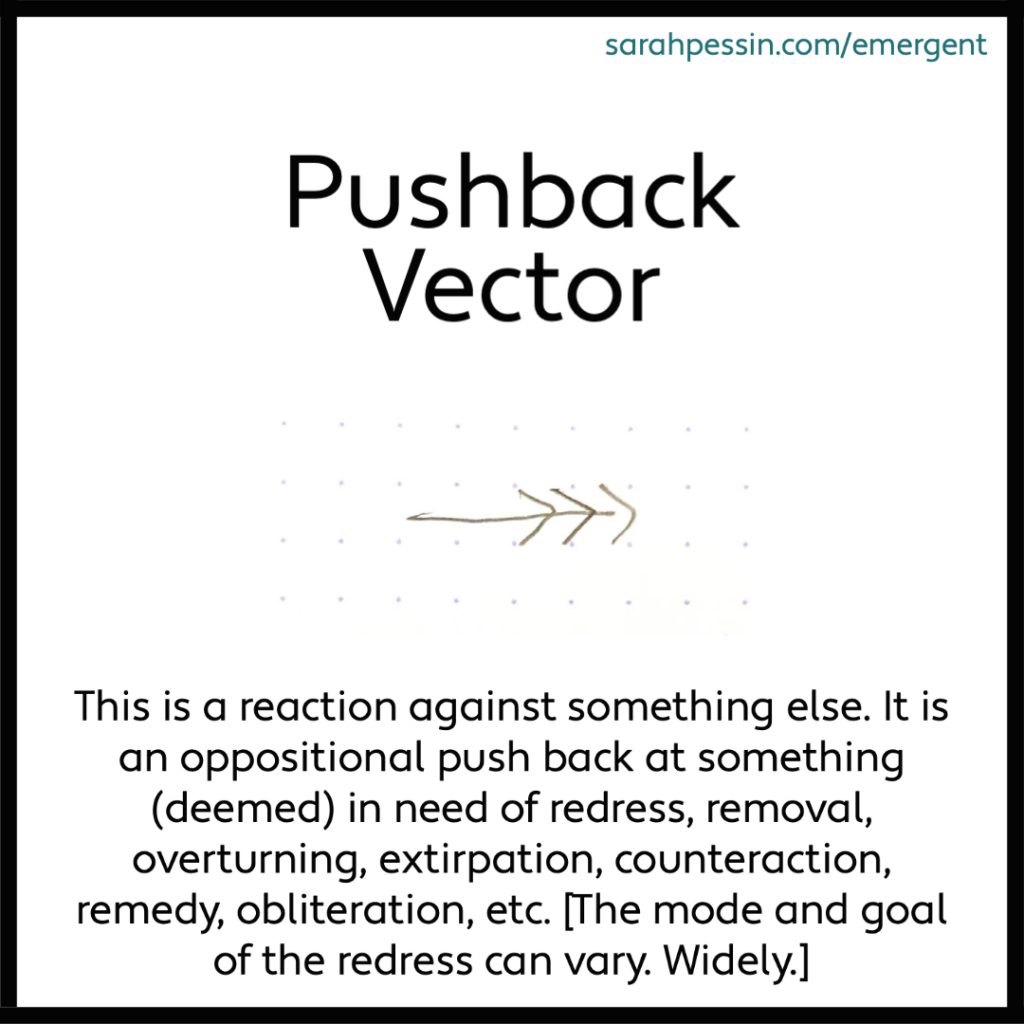

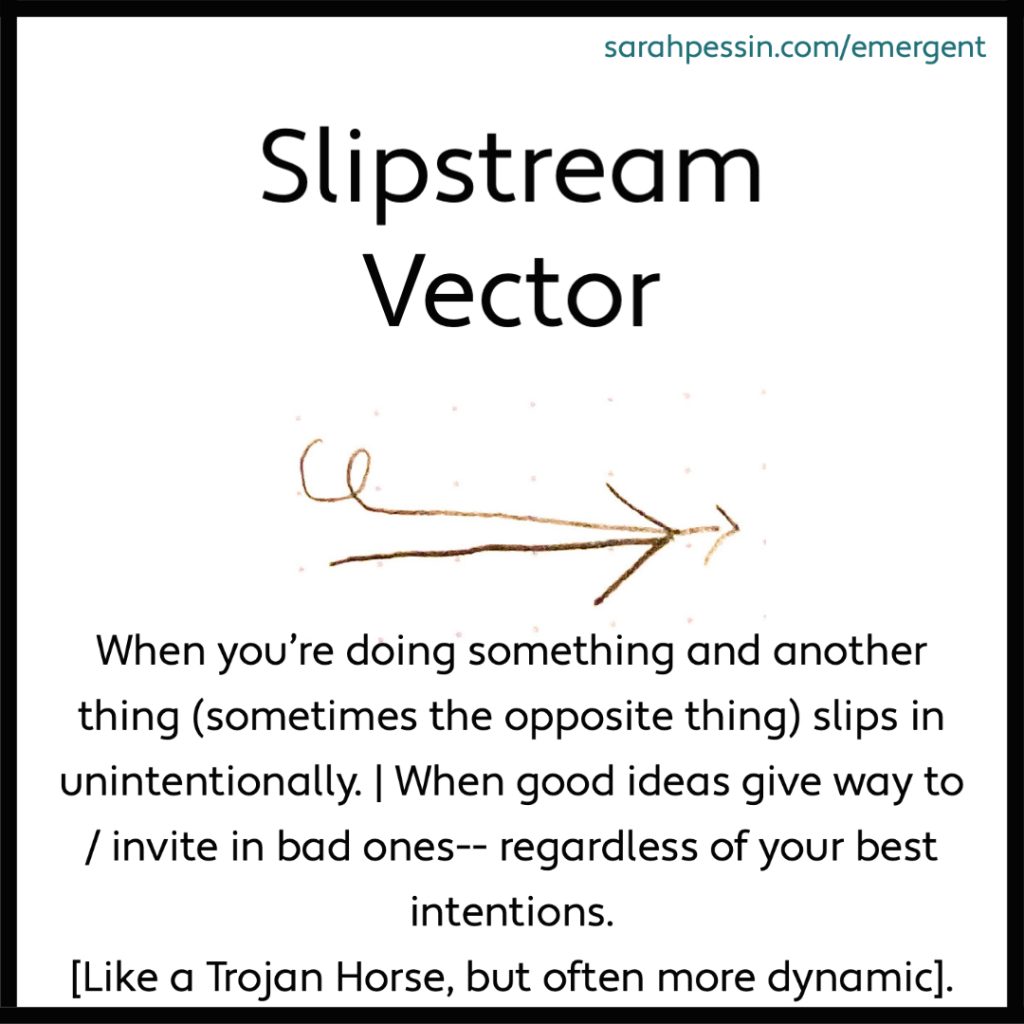
Some examples of Spiral Logics (and how to use the vector symbols for applied analysis and strategizing):
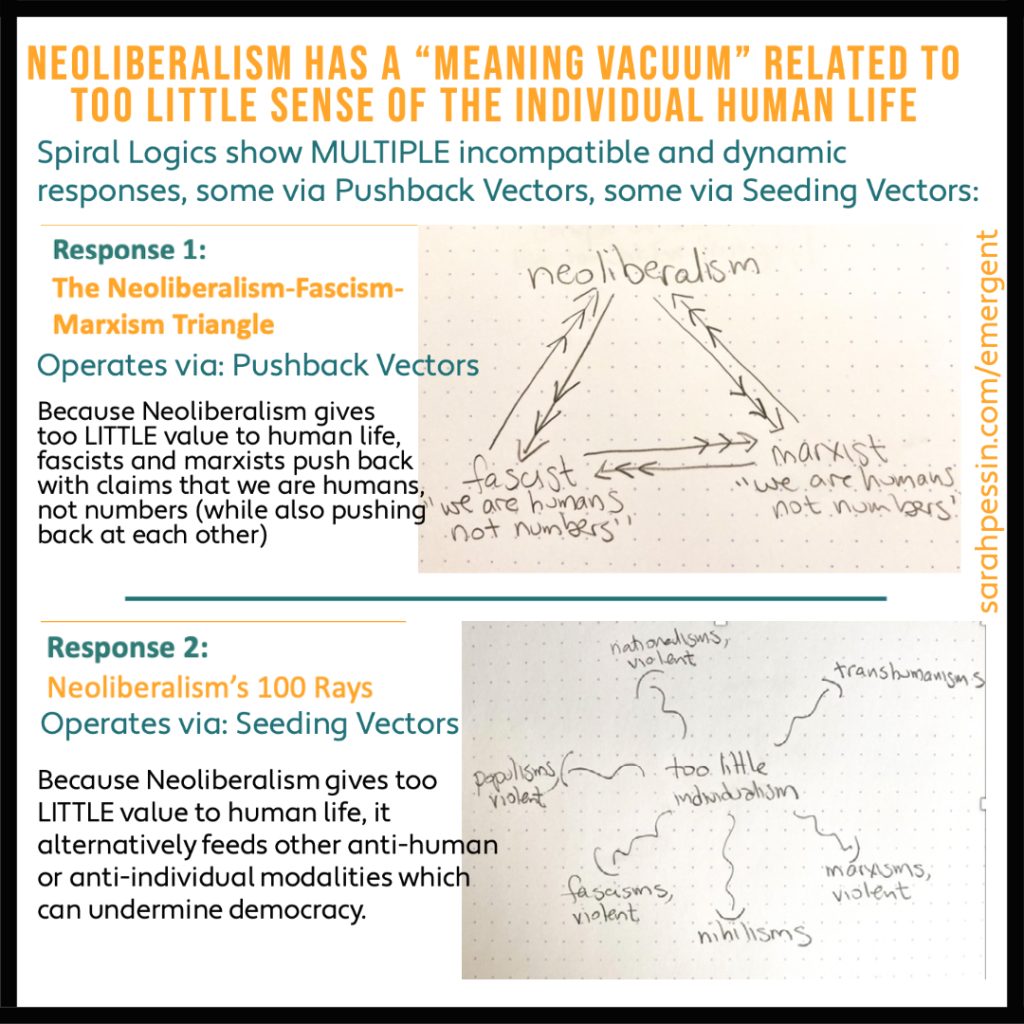
To note: “Behind” (or in front of? under? above?) neoliberalism, we can also point to a healthy form of liberal democracy which upholds a healthy version of “we are humans not numbers.” But for now, that discourse has become part of a range of fascist and marxist anti-democracy “vibes.”

Other Political Vectors
Coming soon!
